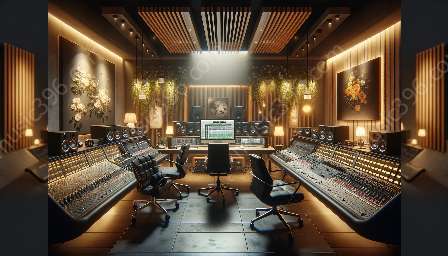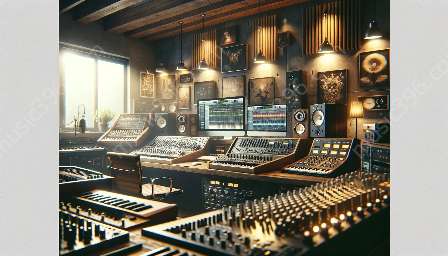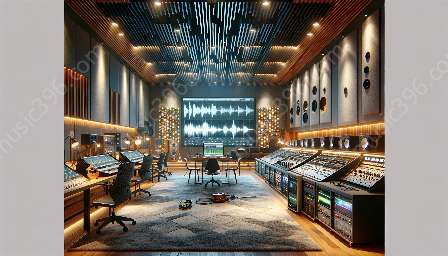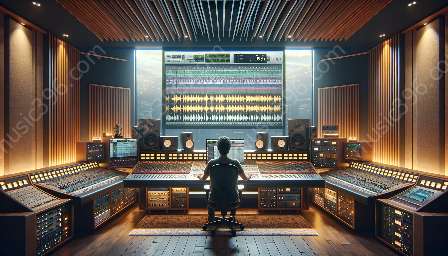With the continuous advancements in technology, the music recording industry has witnessed a significant evolution in the use of plugins. The integration of innovative plugins has transformed the way music is recorded and produced, offering a wide array of creative possibilities for artists and producers. In this topic cluster, we will delve into the current trends and future developments in the field of plugin technology for music recording, exploring its impact and potential to shape the future of music production.
The Evolution of Plugins in Music Recording
Plugins have become an integral part of the music recording process, revolutionizing the traditional methods of recording and mixing. They are software extensions that can be seamlessly integrated into digital audio workstations (DAWs), providing musicians and producers with access to a diverse range of virtual instruments, effects, and processing tools.
Historically, plugins were initially limited in their capabilities, often emulating classic analog gear or providing basic audio processing functionalities. However, with the advancements in digital signal processing (DSP) and computer technology, modern plugins have become highly sophisticated, offering remarkably realistic emulations of vintage hardware, as well as cutting-edge audio effects and instruments.
Current Trends in Plugin Technology
The current trends in plugin technology for music recording reflect the industry's continuous pursuit of innovation and sonic excellence. One prominent trend is the proliferation of AI-driven plugins, which leverage artificial intelligence and machine learning algorithms to analyze audio content and provide intelligent processing solutions. AI-powered plugins can automate tasks such as vocal tuning, noise reduction, and audio enhancement, streamlining the production process and enhancing workflow efficiency.
Another key trend is the expansion of subscription-based plugin models, where users can access a vast library of plugins through monthly or yearly subscriptions. This model offers greater flexibility and cost-effectiveness, allowing musicians and producers to experiment with a wide range of premium plugins without the financial commitment of purchasing individual licenses.
Additionally, there has been a growing emphasis on eco-friendly and sustainable plugin development, with a focus on optimizing energy consumption and minimizing environmental impact. Developers are exploring efficient coding techniques and resource management strategies to create eco-conscious plugins that align with the industry's sustainability initiatives.
Future Developments in Plugin Technology
Looking ahead, the future developments in plugin technology for music recording are poised to introduce groundbreaking innovations that will redefine the creative possibilities in music production. One of the anticipated advancements is the integration of spatial audio processing capabilities within plugins, enabling immersive 3D audio experiences for listeners. Spatial audio technology, coupled with advanced reverb and spatialization plugins, will allow producers to craft spatially-enhanced mixes with unparalleled depth and realism.
Furthermore, the convergence of virtual reality (VR) and music production is expected to inspire the development of VR-compatible plugins that enable artists to immerse themselves in virtual studio environments, revolutionizing the recording and mixing process. VR-enabled plugins may offer intuitive gestural controls and spatial positioning features, empowering musicians to interact with their audio content in a virtual space, transcending the limitations of traditional studio setups.
Another area of anticipated growth is the integration of blockchain technology in plugin development, fostering transparency, copyright protection, and fair compensation for creators. By leveraging blockchain-based solutions, plugin developers can establish secure and immutable systems for managing copyrights, licensing, and royalty distribution, ensuring that artists receive proper attribution and compensation for their contributions to the music production process.
The Impact on Music Recording
The trends and future developments in plugin technology are poised to have a profound impact on music recording, offering artists and producers an unprecedented level of creativity and sonic exploration. The democratization of high-quality audio processing tools through subscription-based models has enhanced accessibility and leveled the playing field for aspiring musicians and producers, empowering them to experiment with professional-grade plugins without significant financial barriers.
Moreover, the integration of AI-driven plugins has streamlined the production workflow, allowing for rapid iteration and experimentation with audio processing techniques. This has led to increased efficiency and productivity in music recording, enabling artists to focus more on the creative aspects of their work and less on technical intricacies.
As plugin technology continues to evolve, it is also fostering collaborative opportunities within the music industry, as developers, musicians, and audio engineers collaborate to push the boundaries of sonic innovation. The symbiotic relationship between technological advancements and creative expression is shaping a new era of music recording, where the boundaries of sonic possibilities are continually expanding.



































